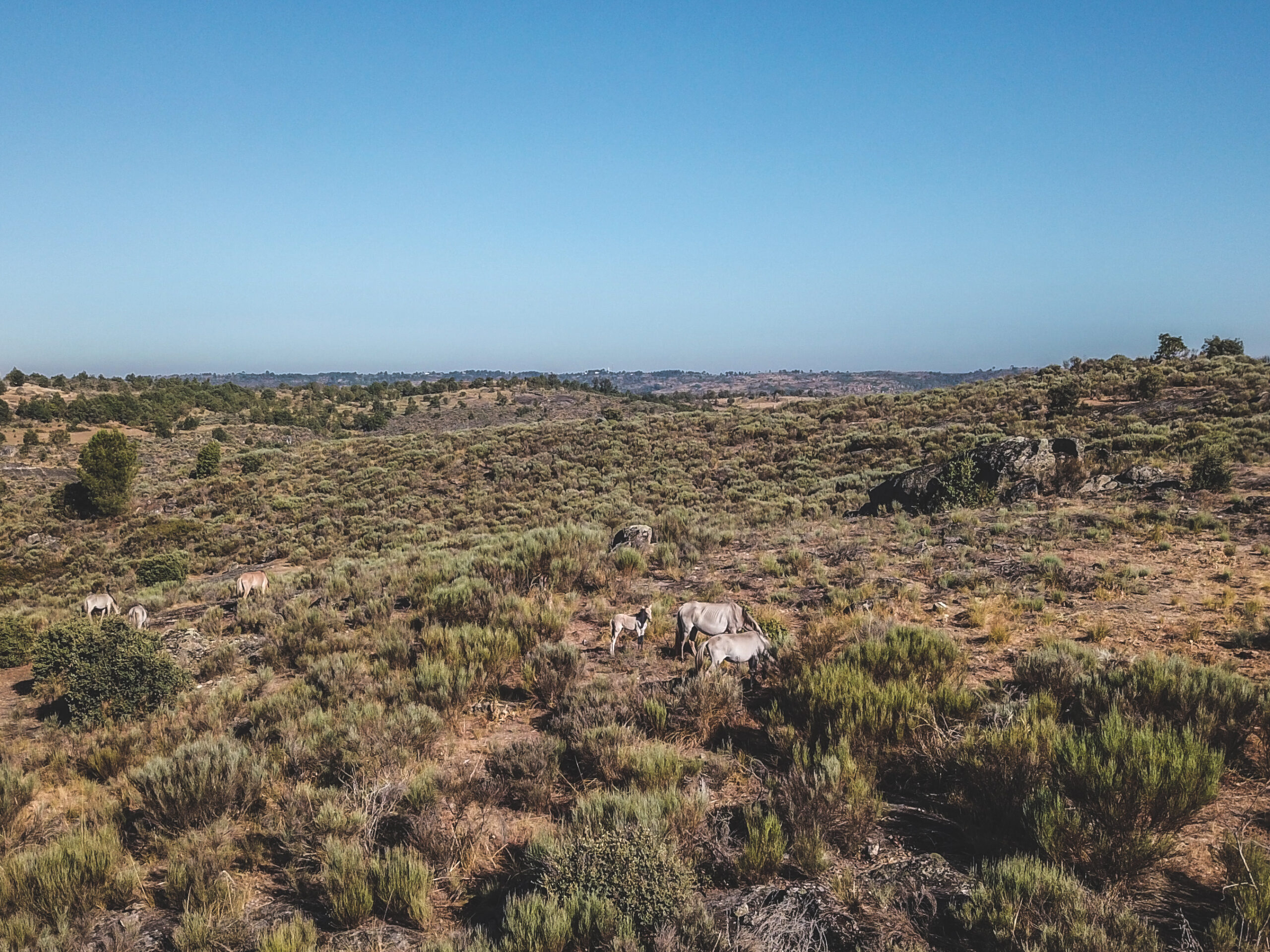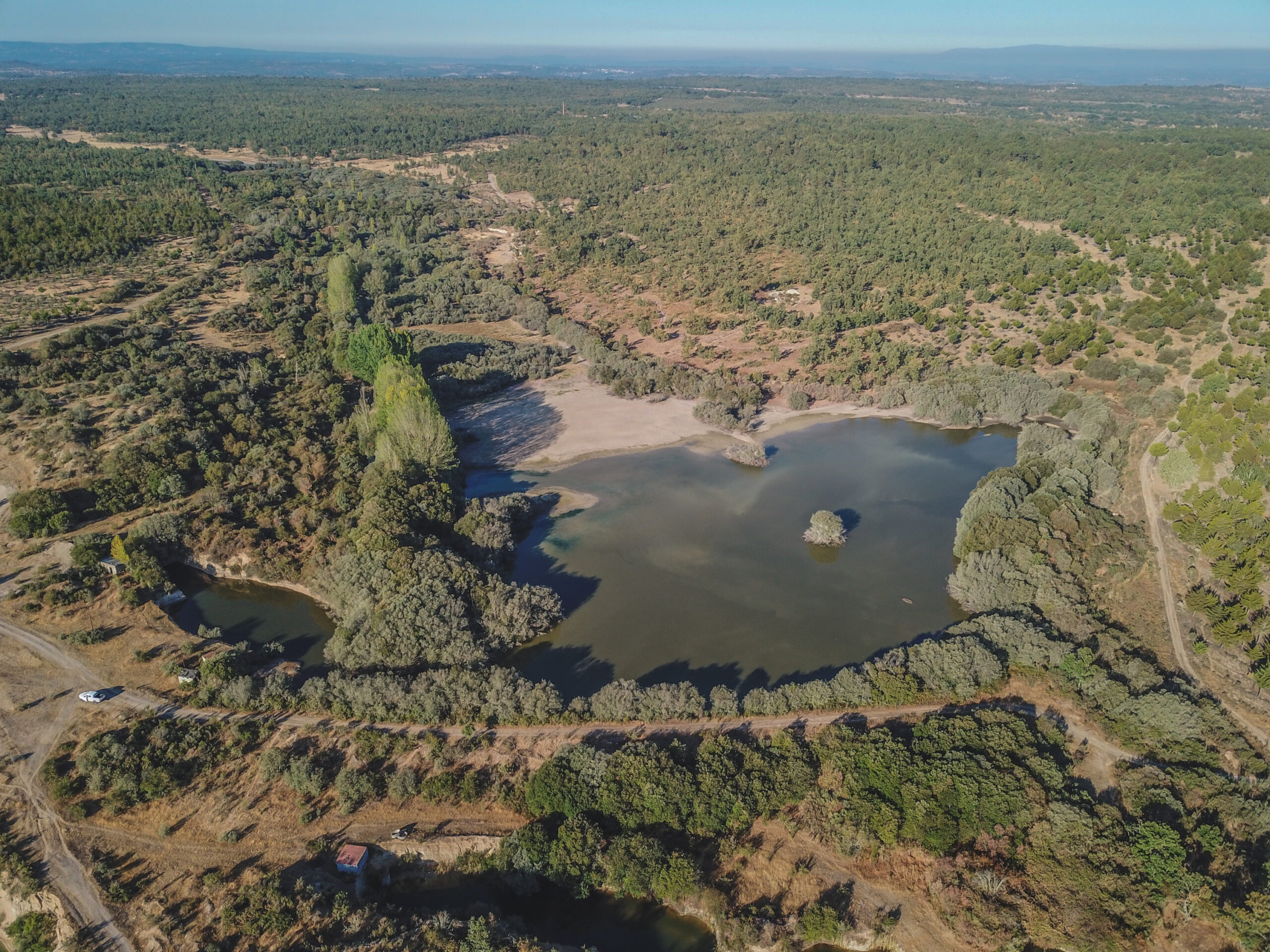In July of this year, the regenerative laboratories that are part of the LIFE ENPLC project, in which Rewilding Portugal is a partner, visited two of the rewilding areas that our organization manages along the Greater Côa Valley: Vale Carapito (Sabugal) and Paul de Toirões (Almeida).

More than 25 people participated, coming from all over the country, representing, individually or collectively, ecological regeneration projects of different types and approaches, with the aim of encouraging debate and the sharing of ideas in this regard. The visit to these areas served precisely to be able to observe on the spot two examples of intervention and regenerative process that are very different from each other and that require different approaches and adapted on a case-by-case basis. It also served to introduce participants to the rewilding approach, explaining this new approach to ecological restoration and recovery and improvement of natural processes so that they can recover ecosystems themselves.
During the visit to these two rewilding areas, there were many themes within this approach that could be analyzed and discussed in group, through what was observed and learned: the challenges of forest replacement, the promotion of the regeneration of an autochthonous forest, the use of large herbivores (tauros, bisons, etc.), the hydrology and ecology of water bodies, the importance of certain species of flora in improving the quality of water bodies, the distribution and movement of certain wild species (eg. deer, roe deer, wolf, lynx etc.), encouraging rabbit recovery as a key process, reducing causes of disturbance to wildlife (eg poaching), behaviour and ecology of Sorraia herds in a semi-wild state already introduced by Rewilding Portugal and their impact on plant distribution and structure etc.

Credits: Agata Rucin / Rewilding PortugalDuring this visit, several challenges and opportunities were identified for many of the ongoing projects of those present, which allowed at the end of the activity a broad discussion in which the local community also ended up participating and being present, also demonstrating the importance of a proximity work to succeed in the field. It will be interesting in the future to continue visiting other projects involved to continue this sharing of ideas and methodologies.
The LIFE ENPLC (The European Networks for Private Land Conservation) project aims to develop a network of professionals and private land managers who seek to mitigate the damage of global warming and the increasing loss of biodiversity and preserve the value of this land for generations to come, uniting these owners and experts in the field of nature conservation in this mission. Learn more about this project here.